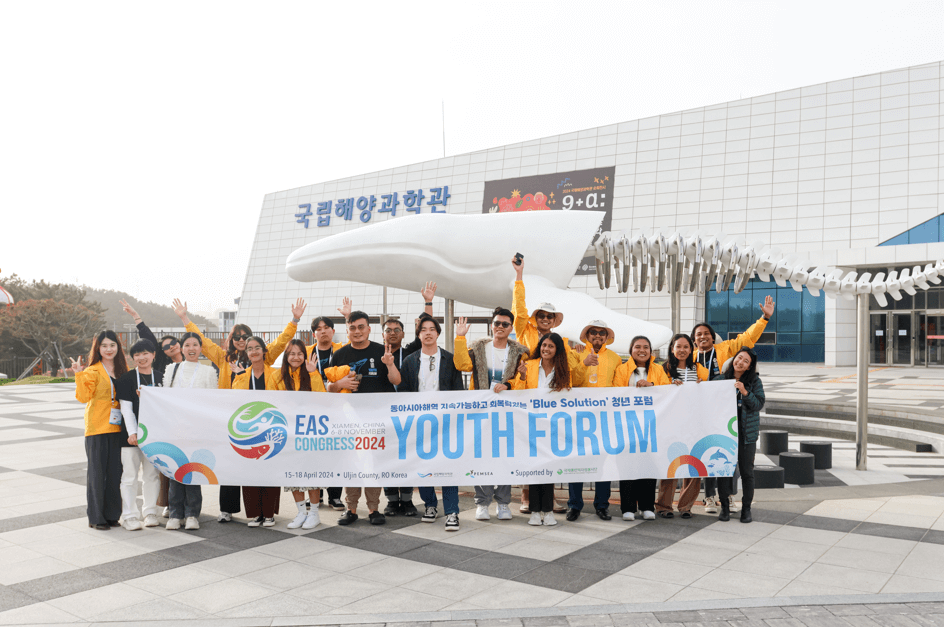PEMSEA Builds Capacity in Scaling up ICM
Thursday, 26 October 2017

MANILA, PHILIPPINES—Partnerships in Environmental Management for the Seas of East Asia (PEMSEA) recently concluded its 2017 Traineeship Programme, supporting the scaling up of Integrated Coastal Management (ICM) and Integrated River Basin Management (IRBM). A total of six trainees from Cambodia, Lao PDR and Indonesia were in the Philippines for a two-month immersion program that aimed to equip them with the technical skills needed to implement ICM/IRBM programs in their respective countries.
The trainees were Ven Serey Sophorn, Chief of Local Support Office of Provincial Planning and Investment Division (Kampot, Cambodia); Khen Sopheak, ICM Program Staff (Kep, Cambodia); Ros Chivin, HR Department Staff (Koh Kong, Cambodia); Fakhrie Wahyudin, Sub-Division Head of Spatial and Land Affairs (Bontang City, East Kalimantan, Indonesia); and Amthong Bouaxay and Thavixay Thammasalo, Technical Officials of Provincial Office of Natural Resources and Environment (Champasack and Saravan, Lao PDR).
This was the second batch of trainees for 2017, following Hari Mahardika of Tangerang Regency, Indonesia who underwent training in the first quarter of the year.
“PEMSEA supports its country partners in the implementation of their national plans in integrated coastal management through various capacity development initiatives,” said Johanna Diwa, PEMSEA Capacity Development Manager. “Aside from local trainings for ICM and specific skills, PEMSEA also offers regional learning mechanisms that are proven effective in facilitating the project and management plans of ICM sites.”
During their stay, the trainees received an orientation on the Sustainable Development Strategy for the Seas of East Asia (SDS-SEA) and how it relates to their countries’ priorities, targets and commitments related to the Sustainable Development Goals (SDGs) and other international instruments. In addition, they were briefed on ICM/IRBM concepts, frameworks, processes and tools.
The trainees visited several ICM sites in the Philippines, exposing them to good practices that can be replicated in their home countries. They visited the provinces of Bataan, Batangas and Cavite and met with key stakeholders who are involved in implementing ICM programs in these sites.
In Batangas, the trainees were exposed to the ICM good practices at the provincial level and in the municipalities of Mabini and Calatagan, including efforts on facilitating inter-agency and multi-sectoral coordination and implementing user fees for dive sites, coral reef restoration and rehabilitation, marine protected area management and solid waste management, among others.
In Bataan, a two-day field visit highlighted the development and implementation of the integrated land- and sea-use zoning plans at the provincial and municipal levels. The trainees also visited the municipalities of Morong and Balanga to learn about their efforts on pawikan (sea turtle) conservation, mangrove restoration and ecotourism.
A visit to Cavite focused on the province’s efforts on climate change adaptation and disaster risk reduction and management (CCA/DRRM), river basin management and waste management. The trainees visited the Imus City Ecology Center and Materials Recovery Facility, Noveleta mangrove restoration area and Naic Pawikan Conservation Project.
Support from other partners
In addition to the ICM site visits, the trainees received briefings from the following agencies and organizations:
• River Basin Control Office and Manila Bay Coordinating Office of the Department of Environment and Natural Resources; Pasig River Rehabilitation Commission; and Laguna Lake Development Authority, to learn about aspects of their work contributing to integrated river basin and coastal area management, especially in the Laguna Lake-Pasig River-Manila Bay watershed;
• The University of the Philippines NOAH (Nationwide Operational Assessment of Hazards) Center on its online system supporting disaster risk reduction and management and early warning for hazards at the national and local levels;
• Barangay Holy Spirit in Quezon City to understand how it implements its zero waste management program; and the Payatas sanitary landfill to see the application of innovative approaches and technologies for ecological solid waste management;
• Maynilad Water Services, Inc., one of the private water concessionaires contracted by the Metropolitan Waterworks and Sewerage System, to understand its approaches and technologies for efficient water treatment and distribution, and wastewater and septage treatment and management;
• Marine Science Institute, a PEMSEA Regional Center of Excellence for Coral Reef Research and MPA Management, to appreciate the institute’s academic programs, research and extension services supporting capacity development and scientific inputs to marine and coastal management in the Philippines; and
• GEF-Small Grants Programme to learn about potential alternative sources of financing to support on-the-ground implementation of ICM programs.
Watch out for the 2018 call for applications for the PEMSEA Traineeship Programme!



